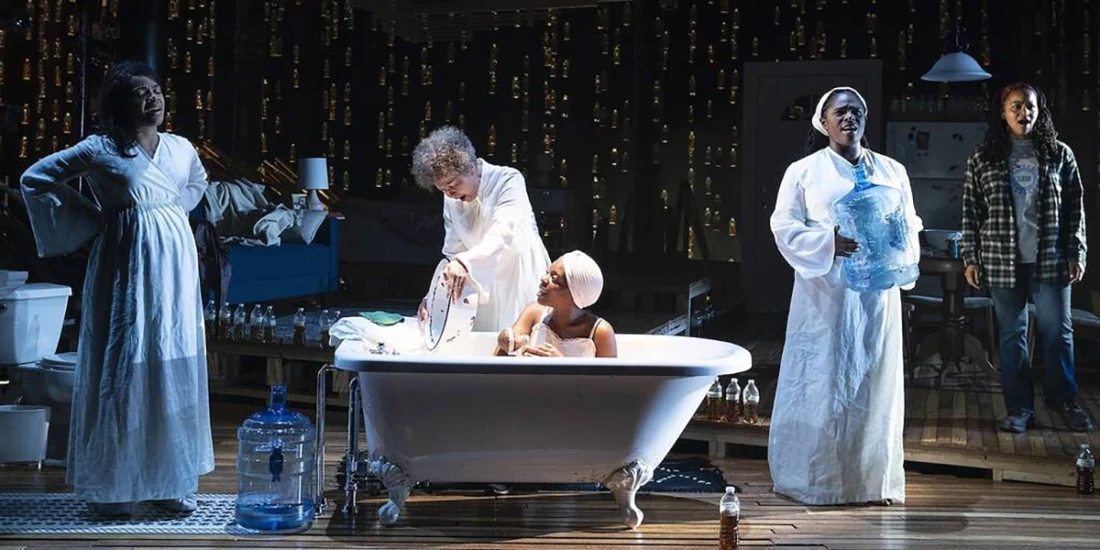'Cullud Wattah' review — a gut-wrenching masterwork inspired by Flint water crisis
Erika Dickerson-Despenza's new play, Cullud Wattah, is a gut-wrenching, soul-stirring, masterwork of a production and solidifies her influence in American theatre. The play, currently running at The Public Theater, gives formidable context to the devastating effects of the Flint, Michigan water crisis that began — as far as we know — in April 2014. More than seven years have passed since the city of Flint switched its water source from treated Detroit Water and Sewerage Department water to the Flint River, triggering a monumental health crisis that inspired one of the finest off-Broadway plays to date.
Under the meticulous direction of Candis C. Jones, this play follows the haunting story of one city's intentional inhumanity and how it affected three generations of Black women. In a rare feat, all five characters add depth and importance to this dynamic piece that bares it all and leaves nothing required. Marion is the family's star player and third-generation General Motors employee (a skillful Crystal Dickinson) who works to keep the family's bottle water supply in full; Big Ma is a God toting, cane-clutching matriarch (the funny Lizan Mitchell); Ainee is the rebellious sister, pregnant for the seventh time (a believable Andrea Patterson); Plum is 9-year-old fisty cancer patient (the captivating Alicia Pilgrim); and Reesee is an outspoken Yoruba princess (the down-to-earth Lauren F. Walker). All the performers feed off each other's energy to create theatrical magic.
"lead/in thuh wattah lead/ in thuh wattah cheeldrun/ lead/ in thuh wattah/
snyder playin god/with wattah..."
A poetic remix to an old negro spiritual is introduced early on to set the theme of the production. The original, "Wade in the Water," is quite significant historically. Harriet Tubman sang it as code to inform fleeing slaves to get to water to help throw off their scent that could be picked up by mercenaries and their dogs. The words are poignantly changed to alert attendees that lead has been found in the water and former Michigan Governor Rick Synder and other officials play a paramount role in the water debacle.
Adam Rigg's mind-blowing set design is a house divided. The foundation of this residence is broken; wooden planks are strewn around its interior, plastic bottles of dirty water hang from the ceiling and counting stick images dominate the chalkboard walls. The sticks marvelously calculate the number of days Flint has been without clean water. Rigg's white cast iron clawfoot tub is most prominent in the bathroom. A space in the home that's usually a sanctuary, a tranquil hideaway to release and refresh is this family's hell where they are subjected to pain and suffering. The water is not clean in this bathroom and with every entrance a new pain is unveiled — skin lesions, heavy periods, pregnancy pains, and loss of life — all of which were experienced by actual Flint residents.
This story is an American tragedy. One that inexplicably affected a majority Black population in Flint. "As of today, November 13, 2021 it has been 2,759 days of dirty water," a narrator said over the speakers on the afternoon I saw the production. Though the newspaper and media haven't bombarded the world with updates to the terror, Cullud Wattah refreshes our memory and urges us not to forget.
Photo credit: Cullud Wattah (Photo by Joan Marcus)
Originally published on
